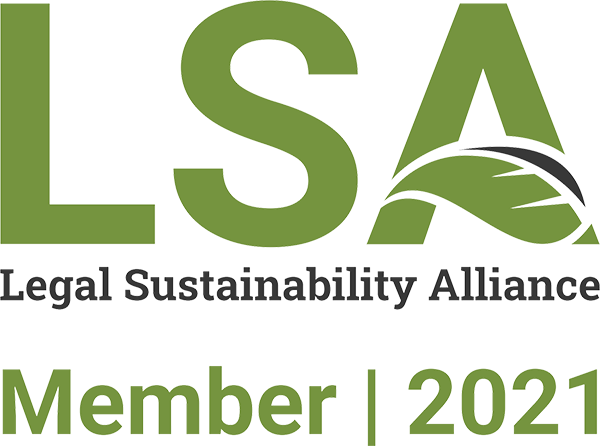Authors: Cristina Tudoran (senior associate), Bianca Chera (associate)
The massive influx of Ukrainian citizens caused by the armed conflict in Ukraine was managed by private companies and numerous Romanian volunteers through an unprecedented mobilization. Although the majority of Ukrainians who entered Romania are in transit, a significant percentage will remain here over the following period of time. Besides the obvious need for accommodation and food, they will also benefit from several support measures and humanitarian assistance, education and medical assistance services, according to a special regulation adopted on 8 March 2022 by the Romanian Government, namely the Emergency Ordinance no. 20 of 7 March 7 2022, published in the Official Gazette no. 231 of 8 March 2022.
The Ordinance also regulates certain exceptional employment conditions applicable to the Ukrainian citizens, which derogate from the usual rules applicable to access to employment. Until the coming into force of the Ordinance, there were two legal procedures according to which Ukrainian citizens could have gotten employed on the territory of Romania: (i) by requesting the special protection regulated under Law 122/2006 on asylum in Romania, or (ii) by going through the ordinary procedure for obtaining the long-stay visa for employment purposes.
Measures to facilitate access to the labour market
Usually, foreign citizens who want to get a job in Romania must meet a series of specific conditions, which include the obtaining of a work permit before starting their activity, the conclusion of an individual employment agreement, the obtaining of the long-stay visa for employment purposes. In order to meet all these conditions, they had to present specific documents and carry out certain formalities (including meeting a certain salary and income level, complying with the annually approved foreign workers quota, obtaining a tax identification number).
As to the previously presented general framework, Ukrainian citizens had already been exempted from obtaining the work permit in case they got employed in Romania under a full-time individual labour agreement for a maximum period of 9 months during one calendar year (but they were still required to obtain a long-stay visa and a residence permit when extending the initial right of residence).
The Ordinance now establishes special rules for the employment of Ukrainian citizens:
- Ukrainian citizens can be employed without the work permit (basically, for the exception to apply, it is no longer necessary that the duration of the labour agreement be limited to 9 months, as required by the general rules);
- the right to stay for employment purposes is extended for Ukrainian citizens (at the expiry of the first 90 days after entering Romania), without the obligation to obtain a long-stay visa for employment purposes;
- Ukrainian citizens who do not hold documents proving their professional qualification or on-the-job experience required to occupy a position, may be employed on the basis of an affidavit stating that they meet the professional qualification and on-the-job experience required for that particular position and that they do not have a criminal record that is incompatible with the activity in question. Under these circumstances, they can be employed for a 12-month period that can be extended for no more than two consecutive six-month periods. However, that exception does not apply to regulated professions, such as that of doctor, dentist, pharmacist, architect and the like.
These special rules will apply only to Ukrainian citizens who legally entered Romania and who do not apply for a form of protection under Law 122/2006 on asylum in Romania (the refugee status or the status conferred by subsidiary protection, respectively). Although the current percentage of people who have applied for asylum is very small, the effects of asylum can be beneficial: by obtaining asylum (or subsidiary protection), Ukrainian citizens are guaranteed access to the Romanian labour market under the same conditions as those applicable to Romanian citizens.
The usual timeframe in which asylum applications are processed is 30 days and can be extended. The law also allows that asylum applications submitted at the border be solved with priority by the Romanian Office for Immigration, respectively within 3 days of receipt. In reality the processing takes several months, so that, most likely, citizens could start working 3 months after they filed their application, under a special provision in the law. Therefore, the main disadvantage of this procedure lies in the rather long timeframe (3 months, at least) in which the applications are likely to be processed.
Practical difficulties and future steps
The ordinance will bring significant simplifications of the Ukrainian citizens’ right to work in Romania. However, there are still many difficulties in what concerns the exercising of that right. And, in the coming days, such difficulties will have to be clarified by the competent authorities in order to ensure that Ukrainians have a real chance of getting employed in Romania. Among the topics intensely debated these days are the opportunity to eliminate the taxes payable in relation to the formalities required to be fulfilled prior to obtaining the right to work in Romania, the concrete way by which the relevant institutions can recognise professional expertise, the possibility of joining professional bodies relevant to certain professions, or the possibility of eliminating some conditions that are difficult to put in practice under the current circumstances (such as the examination of the medical records in view of obtaining the skill certificate required for employment).





